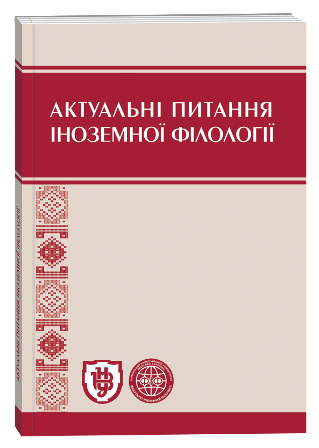COVID-19 IMPLICIT MANIPULATION IN YOUTUBE’S MULTIMODAL POLITICAL DISCOURSE
DOI:
https://doi.org/10.32782/2410-0927-2022-16-11Keywords:
implicitness, manipulation, multimodal discourse, modeAbstract
The subject of the article is the implicit means of manipulation during the Covid-19 pandemic in political multimodal discourse with an emphasis on the linguo-pragmatic aspect based on YouTube video hosting material. Manipulation is a type of influence on the behavior or perception of the viewer, listener or reader, which causes a change or emergence of new views, emotions, attitudes and prejudices about the information presented in a particular material. The presentation of information becomes manipulative not only through grammatical and lexical units, verbal and nonverbal means, but also through the special nature of expression and directly the conditions and context of communication. One of the most effective modern sources of manipulative influence is the multimodal space of YouTube video hosting, through which the speaker can implement not only verbal and nonverbal means, but also visualization and audio effects of presenting information, which contributes to greater efficiency of manipulation. The study is based on YouTube videos of almost the same duration for implicit manipulation of the Covid-19 distribution topic: Doctor Mike blogger and US President Joe Biden. It has been specified that multimodal political discourse is an effective space of implicit means of manipulative influence, the specific nature of which is the multilayered modes that overlap, thus, enabling a certain intensified influence, depending on the intention and purpose of the speaker.
References
Алексеев А. Б. Манипуляция в американском политическом дискурсе: лингвопрагматический аспект. Филология. Журналистика. 2019. Т. 19. № 2. С. 176–180.
Камінська М. О. Імпліцитна негативна оцінка в сучасному англомовному діалогічному дискурсі: когнітивно-прагматичний аспект. Дисертація. Київ, 2019. 239 с.
Козуб Л. Мовні засоби впливу у сучасному англомовному політичному дискурсі. Studia Methodologica. Тернопіль, 2011. Вип. 32. С. 50–53.
Кулієвіч М. Я., Благой В. В. Використання іноземного досвіду діяльності блогерів з метою реклами підприємства. Глобальні та національні проблеми економіки. Вип. 23. 2018. С. 256–258.
Макарук Л. Мультимодальність сучасного англомовного масмедійного комунікативного простору : дис. ... д-ра філол. наук: 10.02.04. Луцьк. 2019. 635 с.
Перхач Р.-Ю. Т., Смирнова А. О. Мовні засоби маніпуляції в пресі: Контент аналіз. Молодий вчений. Львів. № 10 (74). 2019. С. 186–189.
Петрик В. М., Присяжнюк М. М., Компанцева Л. Ф. Сугестивні технології маніпулятивного впливу. ЗАТ «ВІПОЛ». 2011. 248 с.
Попов Р. А. Політичний дискурс: проблема теоретичної ідентифікації. URL: https://scholar.google.com/citations?view_op=view_citation&hl=ru&user=7SApFdkAAAAJ&citation_for_view=7SApFdkAAAAJ:Tyk-4Ss8FVUC (Дата звернення: 30.10.2021).
Примуш М. В., Ярош Я. Б. Політичний дискурс щодо функціонування політичних партій в Україні. Вісник Донецького національного університету імені Василя Стуса. № 5. 2020. С. 22–28.
Akopova A. Linguistic manipulation. Definition and types. International Journal of Cognitive Research in science, engineering and education. Vol. 1. No. 2. 2013.
Dijk V. T. Discourse and Manipulation. Discourse and Society. SAGE Publications. London, 2006. Vol. 17 (2). Pр. 359–383
MacMillan Dictionary. Macmillan Education Limited 2009–2021. URL: https://www.macmillandictionary.com/dictionary/british/manipulation (дата звернення: 27.12.2021).
Yus F. Misunderstandings and explicit/implicit communication. Pragmatics. 1999. Pр. 487–517.
Відео із блогу Doctor Mike Doctor Fact-Checks Media On Coronavirus https://www.youtube.com/watch?v=5CRxyHU9Oxo&t=346s&ab_channel=DoctorMike
Виступ Джо Байдена President Joe Biden on the omicron variant https://www.youtube.com/watch?v=JRhLWJNRyFM&ab_channel=WallStreetJournal







